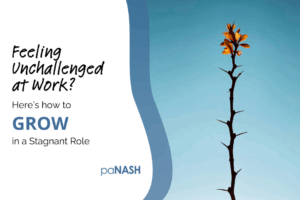|
|
It was 2011 and I was waiting for my new client in his publicist’s conference room. He was a recording artist coming in to begin his media coaching with me to prep him for his radio interviews.
In our first session he told me his life story, how he got to where he was, and what his future looked like. He was different from most of the other recording artists I had worked with. His values and priorities were on a whole other level.
What was typical.
He told me about how he grew up poor with humble beginnings and how he’d always been passionate about music with goals to pursue it as a career. Not an uncommon story among most musicians who eventually make their way to Nashville.
He was the first person in his family to finish not just college, but also high school. This inspired him to become a high school social studies teacher, something else he was very passionate about.
After college, he pursued teaching to support his music career goals. He did both until he couldn’t any longer.
His music caught on like wildfire. In fact, he was getting so many bookings and selling out so many venues his music career completely disrupted his teaching career. He had to leave his students to fulfill his new obligations to his fans.
Again, this is not an unusual story or scenario for most recording artists as they begin their careers. Most start off doing something else to make a living until they’re able to afford to pursue music full-time.
What was different.
But here’s where it gets different with this particular artist: he said to me,
“When this whole music thing dries up, which it probably will eventually, my plan is to go back to teaching social studies.”
I had never heard a recording artist talk like this. Most get so caught up in their rise to fame and fortune they think it will never come to an end. They don’t think long-term.
In fact, most of them believe, and are also told by numerous music industry executives, if you truly want to make it in the music business you can’t have a Plan B. Their theory is if you have a Plan B, you’ll never be fully motivated to pursue the Plan A of a music career. They believe you’ll give up too soon and default to your Plan B before Plan A gets off the ground.
This client was the only artist I knew who didn’t fall for that. He strongly disagreed with that mindset and felt it was totally irresponsible not to have a Plan B. Like everything else, he knew Plan A will eventually come to an end.
He also told me something else I’ll never forget. In describing a recently sold-out show, one where Brantley Gilbert and the Zac Brown Band were opening for him, he said to me,
“To this day, there’s not been one stage I’ve walked onto that didn’t beat the feeling I got the first day I walked into a classroom.”
Talk about a mic drop!
Whether he realizes it or not, this musician is still teaching others in his role as an artist. There are so many lessons from this interaction and his statements I almost don’t know where to begin.
But let’s try to unpack as much as we can here.
1. It can’t be all about the money.
It’s obvious he wasn’t doing any of this for the money. Everyone knows there’s very little money in education. And for someone willing to go back to education after a more lucrative career shows money isn’t a top priority.
As a career coach specializing in helping people pursue their passions, I can tell you if you’re pursuing something only for money with no passion behind it, it’s likely to fail. All the experts will tell you this. This includes business experts, successful entrepreneurs, other career coaches, and the ones who learned this lesson the hard way.
And not only is it likely to fail, you’re also likely to be miserable. If you’re not passionate about what you do and you find no meaning in it besides earning a paycheck, you’re likely to dread going to work everyday. This will wear on you over time.
2. You have to think long-term.
Nothing lasts forever. You could be laid off tomorrow from your current job. Your business idea could take off like a rocket and then just as quickly crash and burn. My former client’s bookings could easily dry up since music fans’ tastes are fickle.
So then what?
While it’s important to learn to live in the moment, there needs to be a balance between living in the moment and considering the future.
One of the things I work with my coaching clients on is establishing long-term goals and helping them figure out how their passions can evolve with those goals.
Sometimes this requires re-evaluating and altering their short-term goals. And sometimes it may require them to alter their long-term goals.
3. It’s not a bad idea to have a back-up plan.
As a result, you may need a Plan B to your Plan A, or even a Plan C to your Plan B.
These plans don’t have to be completely different from each other like they were for my former client. They could be something in the same industry but in a different role or function.
Back-up plans can be a great solution when you’re feeling stuck in your current career situation. I’ve helped many clients brainstorm and test potential back-up plans which eventually got them unstuck.
Do you see any other lessons here I missed? (If so, please comment below!)
Conclusion
My former client had two very different careers he was equally passionate about. One disrupted the other much more quickly than he expected. And it could happen again some day. This happens to almost all of us, including myself.
What will you do when the career you’re passionate about gets disrupted by another passion? Or if it gets disrupted by an entirely new passion you’ve discovered? What will happen if you don’t have another passion (a Plan B) to fall back on?
If you don’t have an answer to these questions, it may be time to consider the lessons outlined above, or even some career coaching for yourself. To find out if career coaching is your next best step, click here and complete the paNASH intake form. Completing the form does not obligate you in any way.
Related posts:
- What Are the Biggest Career Mistakes You Should Avoid?
- What You Need to Know About a Job Loss
- Get Unstuck: How to Know When It’s Time to Invest in a Career Coach






